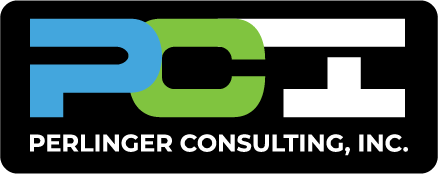Bookkeeping Showdown: Who Packs the Punch?
QuickBooks -vs- Spreadsheets for Small Business Bookkeeping
Managing your small business finances can be a daunting task, but it’s essential for your success. When it comes to bookkeeping, you have a couple of options: using QuickBooks or relying on spreadsheets. Let’s compare and contrast these two approaches, making it easier for you to decide which one suits your needs.
QuickBooks: Your Trusted Bookkeeping Companion
QuickBooks is a popular accounting software that simplifies bookkeeping for small businesses. Here’s why it might be the right choice for you: Ease of Use: QuickBooks is designed with user-friendly features that simplify the bookkeeping process. It provides an intuitive interface, pre-built templates, and step-by-step guidance, making it accessible even if you have limited accounting knowledge.
Time Efficiency:
With QuickBooks, you can automate various tasks, such as invoicing, expense tracking, and bank reconciliation. It saves you time and reduces the risk of errors, enabling you to focus on growing your business instead of getting tangled in spreadsheets.
Accurate Financial Reports:
QuickBooks generates accurate financial reports, including income statements, balance sheets, and cash flow statements. These reports offer valuable insights into your business’s financial health, making it easier to monitor profitability and make informed decisions. Scalability: QuickBooks grows with your business. Whether you’re a solopreneur or have a growing team, QuickBooks offers different plans and features that can accommodate your evolving needs, from basic bookkeeping to advanced inventory management.
Cost: We can match your small business with the QuickBooks product that meets your small business’s unique needs. We also offer a substantial discount on QuickBooks subscriptions. This could be your win-win solution.
Spreadsheets: A DIY Bookkeeping Solution
Using spreadsheets for bookkeeping is a traditional approach that some small business owners prefer. Here are a few considerations:
Customization:
Spreadsheets provide flexibility in designing your bookkeeping system. You can create personalized templates and formulas tailored to your business’s specific needs. This customization allows for a more hands-on approach to tracking your finances.
Cost-Effectiveness:
Spreadsheets are often readily available and come at little to no additional cost, especially if you already have spreadsheet software like Microsoft Excel or Google Sheets. This makes them an attractive option for small businesses on a tight budget or if you are just starting out.
Learning Curve:
While spreadsheets offer flexibility, they do require a basic understanding of formulas and functions. If you’re not already familiar with spreadsheets, there might be a learning curve involved, which could slow down the bookkeeping process initially.
Limited Automation: Unlike QuickBooks, spreadsheets lack the automation features that streamline bookkeeping tasks. You’ll need to manually enter and update data, increasing the chances of errors and potentially consuming more of your time.
Making the Right Choice for Your Small Business
Deciding between QuickBooks and spreadsheets depends on your business’s specific needs and your comfort level with technology. If you value simplicity, time efficiency, and accurate reporting, QuickBooks might be the better option.
On the other hand, if you prefer customization and have a tight budget and a small client base, spreadsheets can serve as a viable alternative at least for a limited time. Ultimately, the choice comes down to what works best for you and your business. Consider factors like the complexity of your financial transactions, your accounting knowledge, and the scalability you anticipate for your business.
Remember, whichever option you choose in the QuickBooks vs Spreadsheets battle, consistent and accurate bookkeeping is crucial for making informed financial decisions and keeping your business on track.
If you need further assistance or have specific questions about bookkeeping tools, feel free to reach out to us. We’re here to support your financial success!
More about QuickBooks: https://en.wikipedia.org/wiki/QuickBooks

This blog is meant for educational purposes only. Articles contain general information about accounting and tax matters and is not tax advice and should not be treated as such. Do not rely on information from this website as an alternative to seeking assistance from a certified tax professional. Perlinger Consulting partners with certified tax professionals to assist our clients.
